Please filter by different types of publications
All Lesser Horseshoe Bat
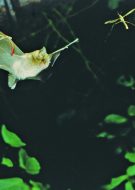
Horseshoe bats are the natural hosts of the Sarbecovirus subgenus that includes SARS-CoV and SARS-CoV-2. Despite the devastating impact of the COVID-19 pandemic, there is still little known about the underlying epidemiology and virology of sarbecoviruses in their natural hosts, leaving large gaps in our pandemic preparedness. Dr Samantha Bremner-Harrison, VWT’s Head of Conservation, has contributed to the research and this paper, which describes the results of PCR testing for sarbecoviruses in the two horseshoe bat species (Rhinolophus hipposideros and R. ferrumequinum) present in Great Britain, collected in 2021–22 during the peak of COVID-19 pandemic.
Photo: Lesser horseshoe bat (Rhinolophus hipposideros) ©Frank Greenaway
Download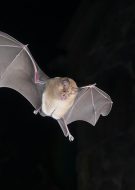
This paper published in the Conservation Evidence journal details how effective building management at VWT’s bat reserves has resulted in stronger greater and lesser horseshoe bat population size increases compared with unmanaged sites.
Download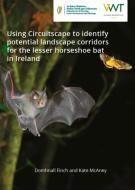
This report presents the results of a modelling study funded by National Parks and Wildlife Service during 2020. The study investigates the gaps in the distribution of the lesser horseshoe bat in Ireland over its entire range, incorporating datasets on land cover, roads, linear habitat features and density of artificial lighting, to produce a baseline map of potential ecological corridors to connect lesser horseshoe bat sub-populations.
Download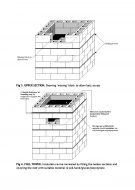
Lesser horseshoe bats require a range of micro-environments in a roost, including an area where they can go into torpor in times of inclement weather, poor insect availability or as their body condition, age or sex dictates. ‘Cool towers’ may also be used in times when the temperature inside the roost is too hot.
Download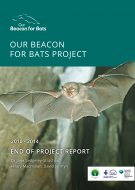
This report presents the achievements and outcomes of the Trust’s Our Beacon for Bats project, which involved local people in the conservation of lesser horseshoe bats in the Usk Valley in south Wales.
Download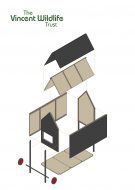
We have recently developed and tested a design for a night roost for lesser horseshoe bats. More information and the design of the night roost is detailed in this document.
Download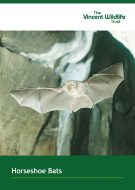
Worldwide there are over 85 species of horseshoe bats. Five are found in Europe, but only two, the greater and lesser horseshoe bat, are native to the British Isles. Horseshoe bats have a circular flap of skin surrounding their nostrils and the horseshoe shape of this ‘nose-leaf’ gives these bats their name.
Download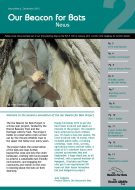
The Our Beacon for Bats Project is a three year project, funded by the Brecon Beacons Trust and the Heritage Lottery Fund. The project builds on conservation work carried out by The Vincent Wildlife Trust in the upper Usk Valley over many years.
Download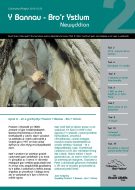
Prosiect 3 blynedd yw OB4B. Ariennir ef gan Ymddiriedolaeth Bannau Brycheiniog a Chronfa Dreftadaeth y Loteri. Mae’r prosiect yn adeiladu ar waith cadwraeth a wnaed gan y VWT yn rhan uchaf dyffryn yr afon Wysg ers blynyddoedd nawr.
Download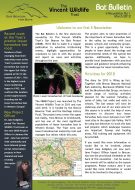
The Bat Bulletin is the first electronic newsletter for The Vincent Wildlife Trust’s Our Beacon for Bats Project (OB4B). This is a regular publication to advertise forthcoming events, highlight opportunities for volunteers to join in with the project and report on news and activities throughout the year.
Download